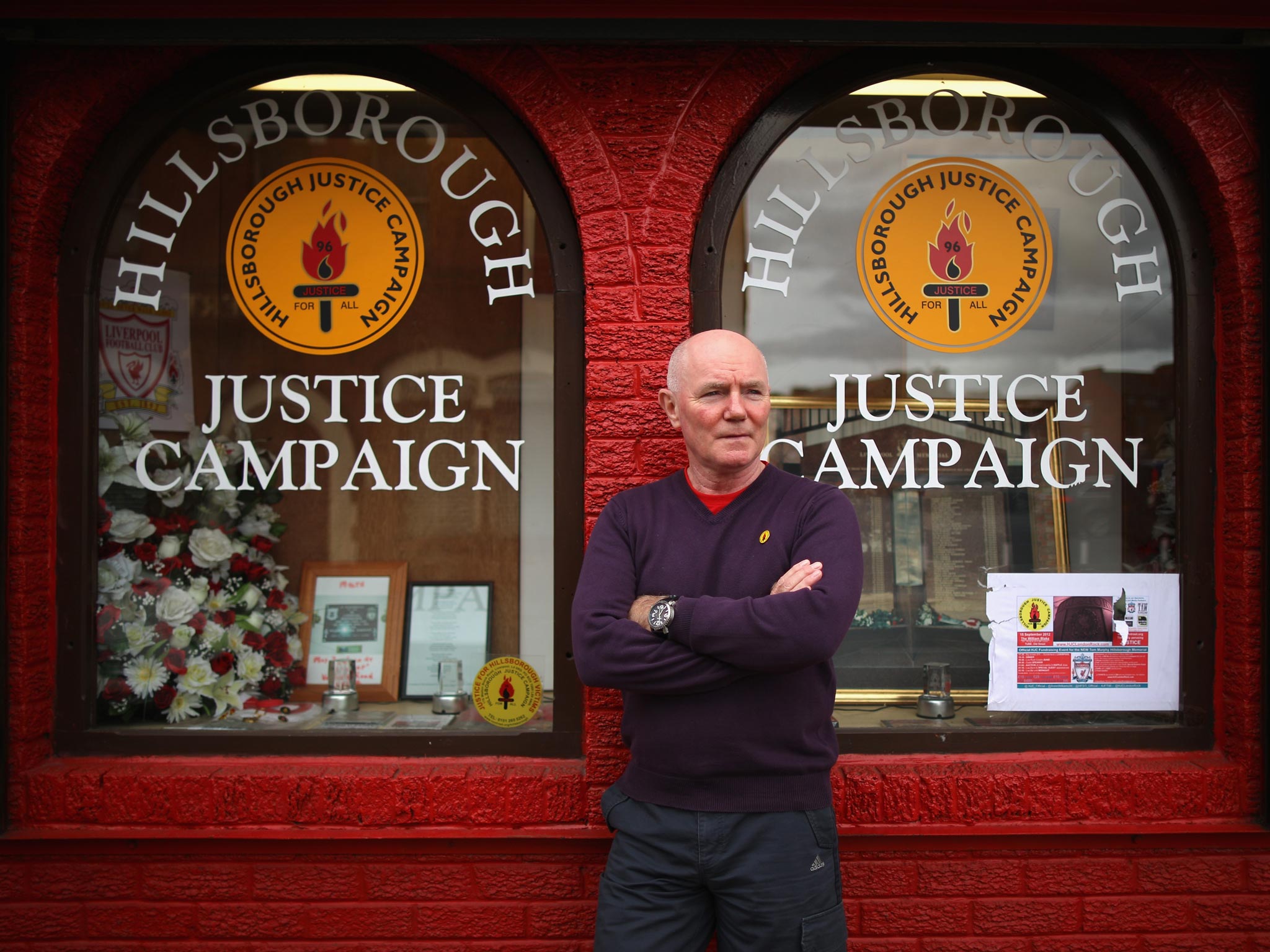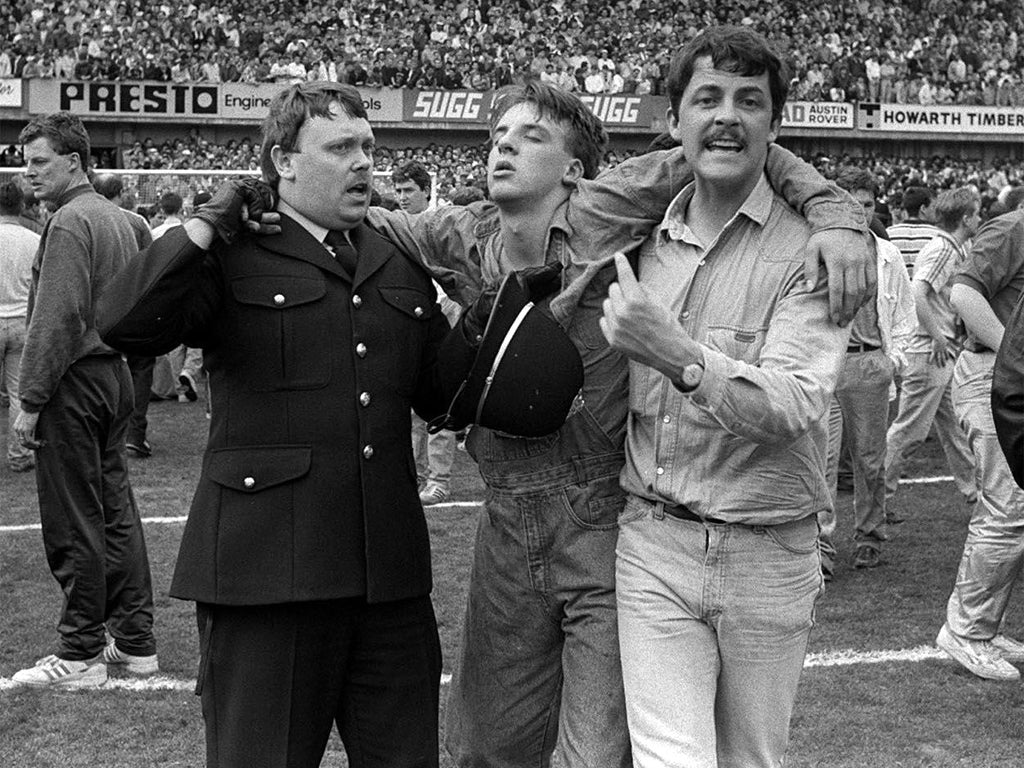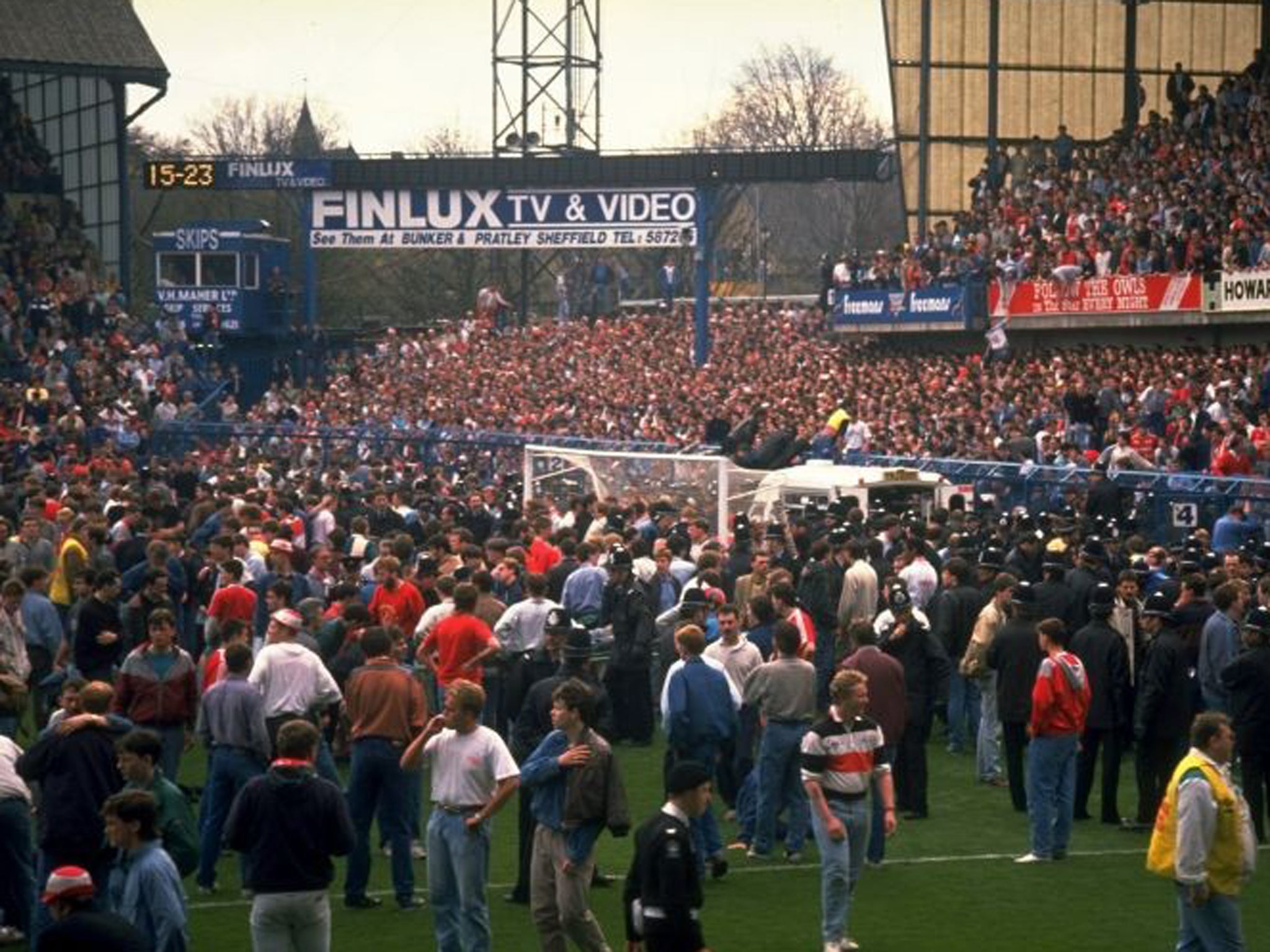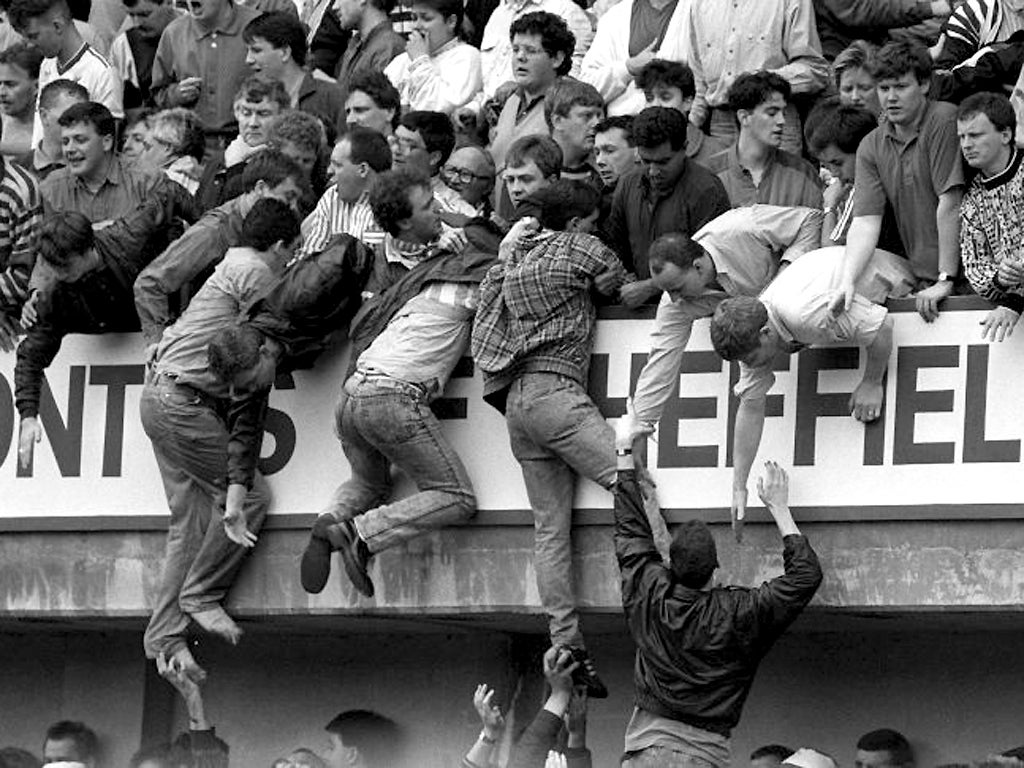Hillsborough stadium tragedy inquests: Families await a fresh moment for truth
The first of the new inquests into a 25-year-old tragedy begins next week, reopening old wounds but also reawakening hopes of closure and justice. Jonathan Brown explains how much is at stake

These are once again tense and difficult days for the families of the victims and the survivors of the Hillsborough disaster.
It may be nearly a quarter of a century since the crush – Britain’s worst sporting disaster – claimed the lives of 96 Liverpool fans, but as the latest milestone in their long fight for justice approaches, with the new inquests days away, the old wounds are reopening.
“I’m really anxious and quite nervous about what is going to happen. We are once again going to have to show our souls to the world,” said Steve Kelly, whose brother, Michael, was among those to perish in the spring sunshine in Sheffield in April 1989.
The relatives – many of them survivors – must now prepare for the long months of harrowing evidence that lie before them. Time off work must be arranged, travel plans fixed: the terrible loss once again relived.
Mr Kelly like the other families has written a “pen portrait” of his lost loved one which he will read to the jury after the coroner’s opening statement next week.
The simple search for the truth drives the families forward. “It will give us a final piece to our jigsaw and give us what we consider to be the correct verdict on the death certificate. Hillsborough certainly wasn’t an accident – it was a disaster waiting to happen,” said Mr Kelly.
The original accidental death inquest verdicts are one of the most painful injustices of the tragedy and the findings of the Hillsborough Independent Panel in 2012 made the quashing of the verdicts a necessity and new hearings inevitable.

As well as revealing evidence of altered police statements and a systematic smear operation to lay the fault for the disaster at the feet of fans wrongly accused of being drunk, it concluded that up to 41 of the victims might have survived if they had received adequate emergency care.
When Lord Justice Goldring convenes proceedings in Warrington on Monday, it will fall to a jury of 12 men and women to answer four questions.
The first two – the identity of the victims and their place of death – are open to little doubt. The remaining issues – the time of death and how the deceased came to die – will occupy much of the eight months that the inquests are expected to last.
At the original hearing, the Coroner for South Yorkshire, Dr Stefan Popper, ruled as inadmissible evidence from beyond 3.15pm – two minutes after the first St John Ambulance trundled on to the pitch on that FA Cup semi-final Saturday afternoon.
It was a decision which enraged and baffled relatives who asserted from eyewitness accounts from fans that their loved ones had still been alive up to 45 minutes after the cut off. The original inquest focused not on the effectiveness of the rescue and resuscitation efforts but on the circumstances of the crush, the panel found.
Families were distraught at the coroner’s unprecedented decision to record and publish the blood-alcohol levels of all the victims. This was despite the discrediting of police claims that drunken late-arriving fans had caused the tragedy. Evidence of drinking, however, will once again be aired at the new hearing at the request of counsel for the police.
There was also dismay that during the mini-inquests before the full hearing at Sheffield (resumed only after it had been decided that there would be no criminal charges arising from the tragedy) investigating officers from West Midlands Police were able to present summaries of statements as fact before the jury.
According to the panel, the 80-day inquests – the longest in English legal history – had been “controversial in their organisation, conduct and outcome”. At their conclusion in March 1991, the verdict was greeted by cries and shouts of anguish from the families.
Among the evidence to be considered during the coming months will be the planning for the semi-final, including a visit to the scene of the tragedy at the Sheffield Wednesday ground. There will also be testimony from witnesses on the policing operation on the day. But the jury will not hear from match-day commander Chief Superintendent David Duckenfield or senior officers Superintendents Roger Greenwood and Roger Marshall, who were also on duty.

Lawyers for the three men, among eight officers being represented at the inquest, have indicated that they will exercise their right not to answer questions because of the criminal investigation, Operation Resolve, which is running in parallel to the inquest. They joined counsel for the Police Federation in seeking to have the inquest delayed until the completion of the criminal inquiry under former Chief Constable, Jon Stoddart, which could last up to three years.
The Independent Police Complaints Commission has also launched the largest ever inquiry into alleged malpractice after the panel’s report.
It said on Thursday that 13 retired or serving police officers had been identified as “suspects” and that 11 of these had already been interviewed under caution relating to offences including manslaughter, misconduct in a public office and perverting the course of justice. It will not report back until after the inquest verdicts.
In what will prove the most difficult sessions, the inquest will recreate the experience of all 96 victims based on CCTV footage, eyewitness accounts and press photographs.
Labour MP Andy Burnham, a lifelong Everton fan who played a pivotal role in the uncovering of evidence in the lead up to the panel’s report, praised the dignity of the families but said the full truth of the tragedy was still not known. “Much of the full story has emerged but not all of it. When it is known that will create its own momentum,” he said.
Meanwhile, the families are changed by the past 25 years.
Mr Kelly, whose mother, and sister both died before this crucial day, said: “I remember a lot going over my head [at the original inquest]. I didn’t understand the legal arguments. I was overawed. We were still traumatised. I was scared to challenge anything. We were simple working people and we were not used to being thrust into the limelight.
“Not one of us would have envisaged the monumental effort it took to get to where we are today and the toll it has taken. Hillsborough has created so many victims. But as families we will have done our duty to our loved ones. We can at last put that side of it to bed. This is for the families.”

The key players: Judges and QCs
Lord Justice Goldring
Former senior presiding judge for England and Wales has been appointed as an assistant coroner to oversee the inquest due to its complexity.
Christina Lambert QC
High ranking counsel to the inquest, she recently led the Dame Janet Smith review into workplace culture and practice at the BBC in the wake of the Jimmy Savile scandal.
Michael Mansfield QC
One of Britain’s leading human rights lawyers is appearing for 71 families from the Hillsborough Family Support Group.
John Beggs QC
Described as “the QC to go to if you’re a police force in a tight spot”, he will be counsel for the match-day commander, former Chief Superintendent David Duckenfield.
The key issues
Stadium safety: Preparation and planning for the semi-final clash will come under intense scrutiny.
Events on the day: The policing operation that led up to the crush, stewarding and signage inside the ground.
The response: How competent was the medical and police reaction to the unfolding tragedy?
The 96 victims: The last hours of each victim will be recreated.
Post mortem: Pathologists will reveal what happened to the bodies and the causes of death.
Join our commenting forum
Join thought-provoking conversations, follow other Independent readers and see their replies
Comments
Bookmark popover
Removed from bookmarks